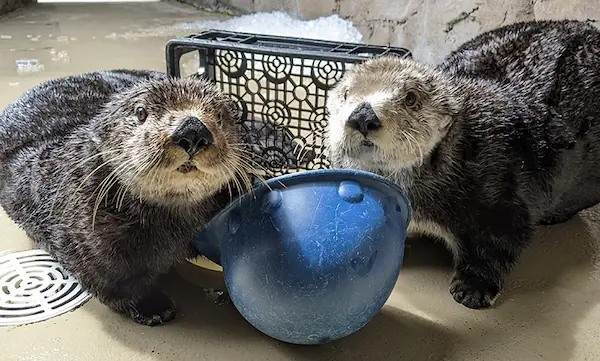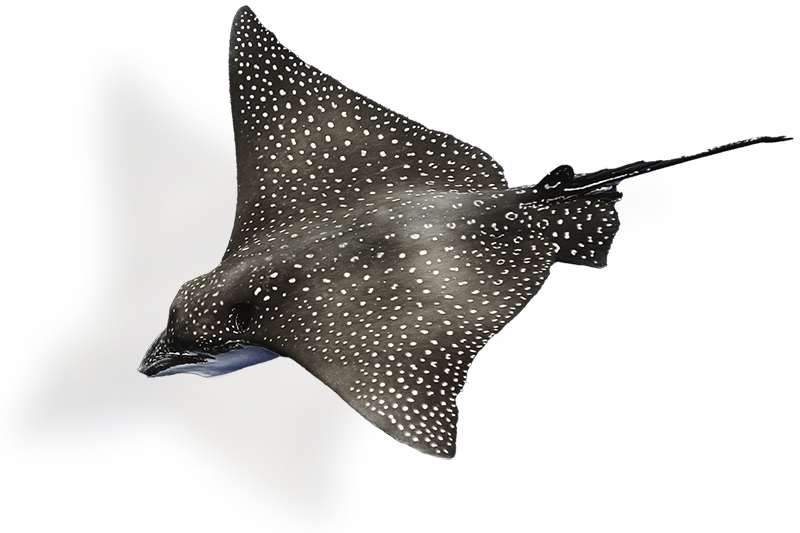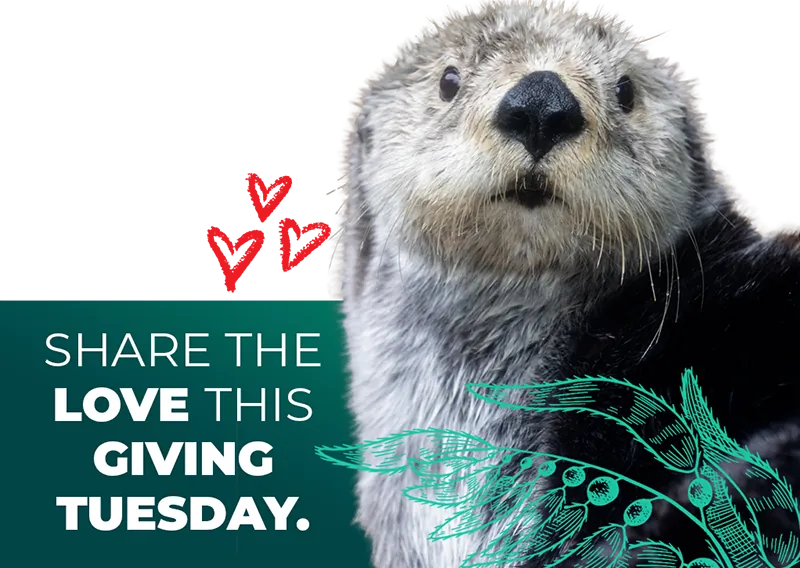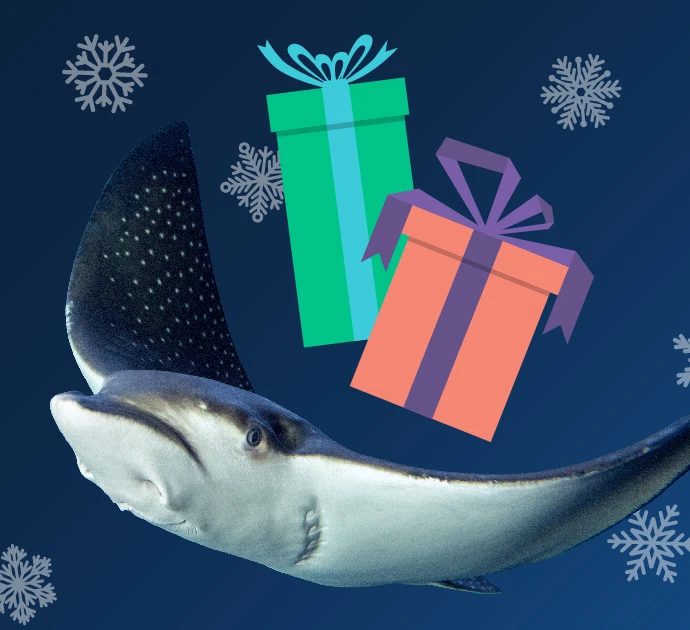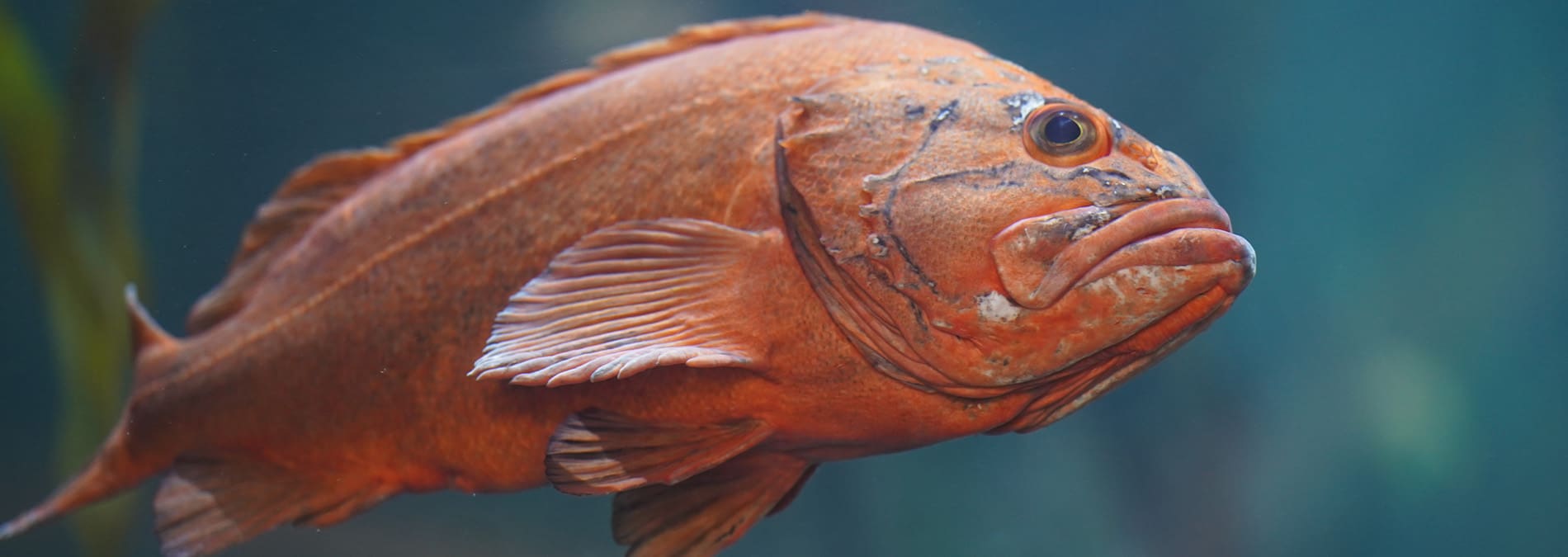
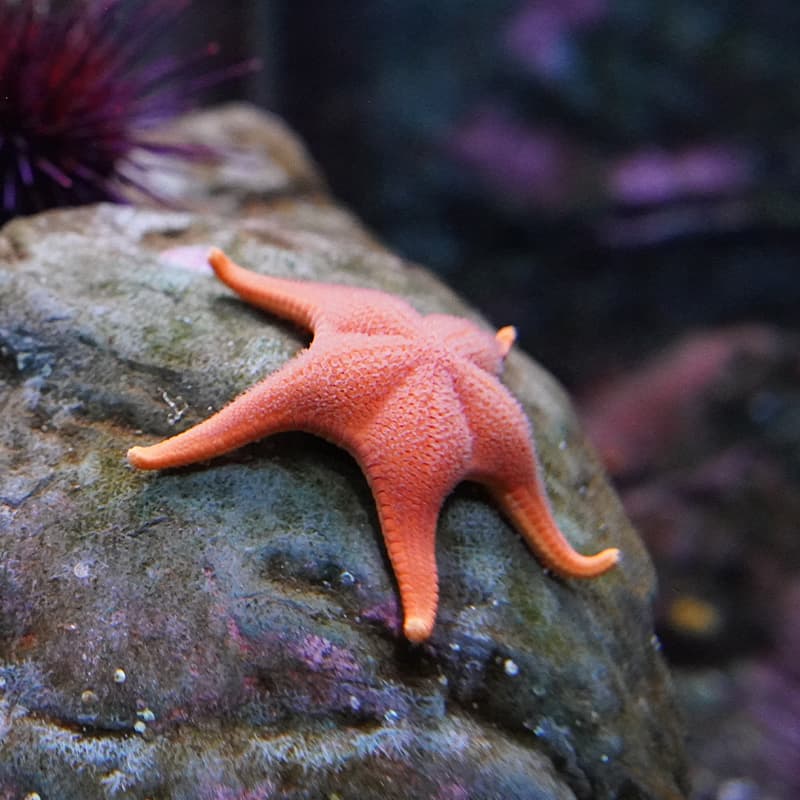
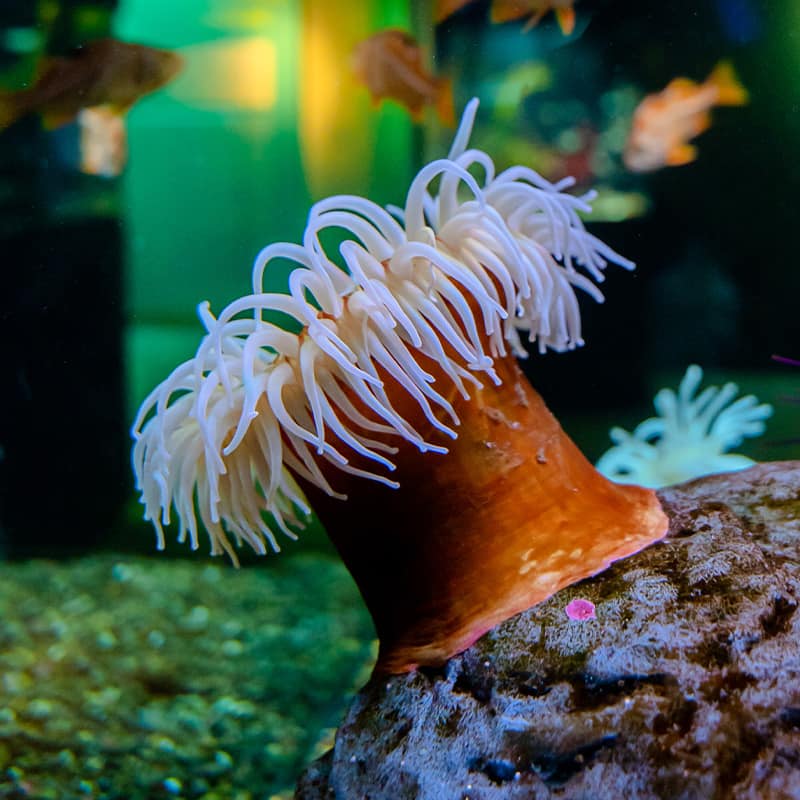
fostering empathy for wildlife workshop
Are you and your staff interested in learning more about using empathy to motivate guests to take conservation action? The Seattle Aquarium has led workshops for facilities around the country to help aquariums and zoos do just that.
Zoos and aquariums accredited by the Association of Zoos and Aquariums (AZA) use education to connect the public with critical conservation issues. These institutions engage communities through diverse programming that uses research-based strategies to inspire conservation action. Successfully inciting such action depends on addressing barriers, incentives and internal motivators. Internal motivators—such as connectedness to nature, environmental identity, emotional affinity with nature, environmental self-efficacy, nature relatedness and empathy—are all associated with conservation action. Of these, empathy toward wildlife is an important factor in predicting an individual’s willingness to take conservation action. To continue improving the efficacy of our programming, it’s valuable to understand how empathy is developed toward wildlife and how our programs and guest interactions can foster that connection.
If you are interested in scheduling an empathy workshop at your facility, please fill out our interest form.
Have more questions? Check out our FAQ or send us an email at empathy.workshop@seattleaquarium.org.
See what our participants say
"Thanks for shining a light on this important topic and giving us actual tools to use to evaluate this in our programs."
"So enjoyed the course! Fantastic teachers and great information! Thanks for making the trip!"
"This was great! I feel that I came away from the workshop with a lot of new and interesting information. It was also a great deal of fun!"
"I appreciate the time spent on this training and feel there are specific things I can use in my work."
"It was a great workshop. Very inspiring with helpful tools I can start using now."
“The combination of research and more of a theoretical conversation, with practical examples of ways to incorporate empathy practices into our work, has already informed some of what I do and how I do it in my day-to-day.”
“Really enjoyed this workshop! I told anyone who would listen about this workshop all weekend.”
“It gave me the terminology of tools I was using and new ways to implement them. I feel like I have a better understanding as to how important it is to foster empathy and understanding for our animals.”
“I thought the structure was great and the timing was good. I almost wish that we had another day because I feel like there was so much more to learn!”
Workshop FAQs
Are workshops currently being offered?
Yes! We are currently accepting requests for workshops. If you are interested in scheduling a workshop at your facility, please fill out our interest form.
What is the workshop?
An empathy workshop lasts 1.5 days. The first day provides an introduction to the concept of empathy in a conservation context. It includes discussions and activities focused on how to foster and identify empathy in our audiences and addresses the use of strategic anthropomorphism. Day two centers on the practical application of concepts covered on the first day and concludes with an action-planning session for participants who wish to integrate empathy principles into their work. This workshop is suitable for zoo and aquarium staff across all departments.
We also offer an optional hourlong executive session add-on for staff/leadership who are interested in the topic of empathy for animals but can’t attend the full workshop.
Additional content is available upon request, covering empathy evaluation and measurement tools. This could include an additional two-hour customizable segment of the workshop designed for staff that are most involved in program evaluation.
What are the goals of the workshop?
Through this workshop, participants will understand that:
- Empathy is a skill that can be practiced and developed.
- Paying attention to the perspective and experience of an animal supports empathy development.
- There are evidence-based practices that zoos and aquariums can use to promote empathy development through programs, exhibits and interactions.
- Empathy impacts our work and can be an important tool in encouraging pro-conservation behavior.
Participants will be able to:
- Recognize empathic responses and behaviors in visitors.
- Identify areas of their work where they can incorporate empathy principles.
- Apply empathy principles to real-life situations (e.g. program development, exhibit design, signage and communication).
- Network with colleagues within and outside of their institutions.
How many people can attend?
The Seattle Aquarium does not limit the size of the workshop—usually it’s up to the institution and its available space. We’ve found that it works best with up to 60 attendees.
How much does it cost?
The Seattle Aquarium provides:
- Briefing document and supporting materials
- Two workshop leaders
- 10–12 hours of instruction
- Empathy measurement tools and training
- Ongoing support after the training
- One-hour overview/executive session (if desired)
Host provides:
- Travel for two workshop leaders (air, lodging, meal and transit reimbursements) (If your institution is located in the Seattle area, only mileage, parking and lunch are requested)
- Printing of workshop materials
- Lunch for workshop (optional for participants, required for facilitators)
- Workshop space on grounds
- Live animal experience (if feasible)
- Opportunity for local colleagues to join if space is available (with preference for AZA facilities)
Where have workshops been conducted in the past?
Great question! As of 2024, the Seattle Aquarium has led more than 30 workshops for nearly 90 accredited zoos and aquariums and related organizations from over 30 states, the District of Colombia and one province in Canada. Combined annual attendance at these institutions is over 80 million visitors per year!
Download our map of past workshops to see the AZA-accredited facilities that have hosted and attended Seattle Aquarium’s empathy workshops.
MEET OUR FACILITATORS

Jim Wharton, Ph.D (he/him)
Vice president, conservation engagement and learning
Jim provides leadership for the Aquarium’s empathy focus and has served as principal investigator on two major empathy grants. He has nearly 30 years of experience in the field of marine conservation engagement and co-created the empathy workshops. Jim sees empathy as a key driver and strategy in the Aquarium’s conservation mission, connecting people to animals and ecosystems and encouraging them to see the ocean as a source of hope, wonder and belonging…not to mention essential to their survival.
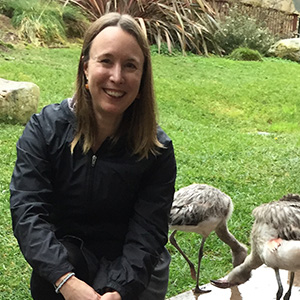
Darcie Larson (she/her)
Senior manager, learning operations
Darcie leads a team of amazing staff and volunteers who engage with the public both within the Aquarium and out at local beaches, rivers and partner sites. With over 20 years of experience in marine conservation, education and outreach centered around the Salish Sea, Darcie approaches her work with a race and social-justice lens and loves having conversations about how we can use empathy to connect with people and animals.
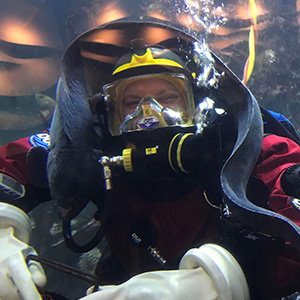
Cari Garand (she/her)
Interpretation training coordinator
Cari trains, coaches, supervises and supports the staff in the Aquarium’s visitor engagement department. You may also find her blowing bubbles and high-fiving eager explorers as one of the Aquarium’s scientific divers. “Although I may not have realized it, empathy played a huge role in fostering my own passion for the ocean. In college, I was (and still am) in awe of what many people overlook at a trip to the beach: the amazing barnacle! I was fascinated to learn they live upside down in a home they built, doing headstands while eating with their feet. The complexity of a seemingly simply creature catapulted me into a lifetime of marine education and conservation.”
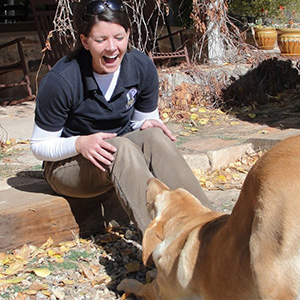
Sarah Brenkert, M.S.Ed. (she/her)
Principal evaluator
In addition to her work as a social science researcher, Sarah has a background in informal learning theory, exhibit design and development, and early childhood education. Sarah earned a Master of Science in early childhood and elementary education from Bank Street College of Education in New York City, and formerly held leadership positions in education and evaluation at the Children’s Museum of Denver and at Denver Zoo. Sarah is insatiably curious about how and what people learn when they spend time in zoos, aquariums, museums and science centers. Sarah’s favorite part of her job is working with others to ask interesting questions and explore stories of impact and transformation in free-choice learning spaces.
